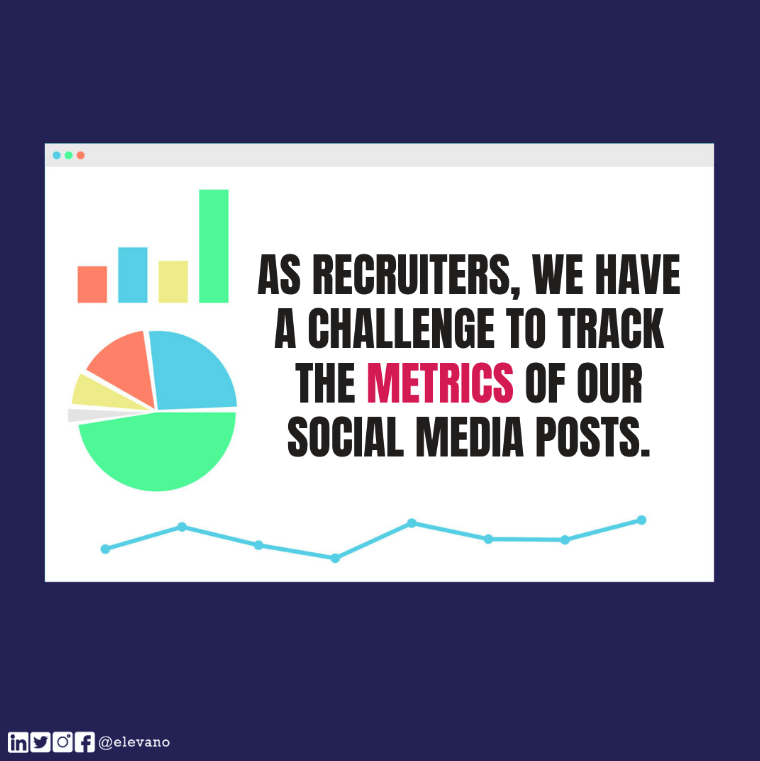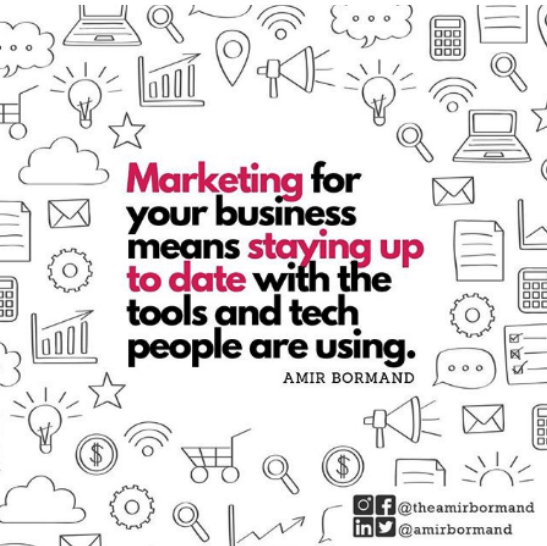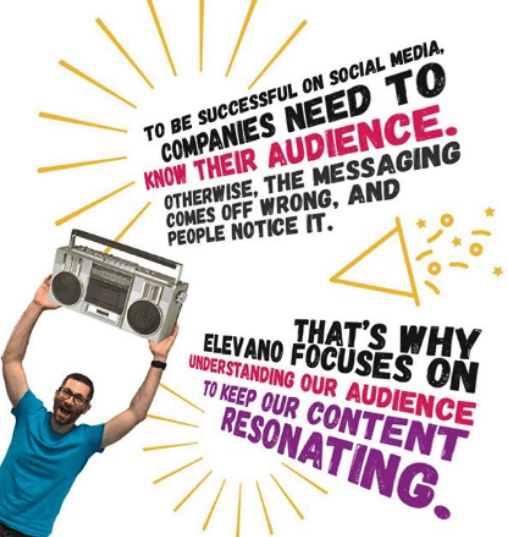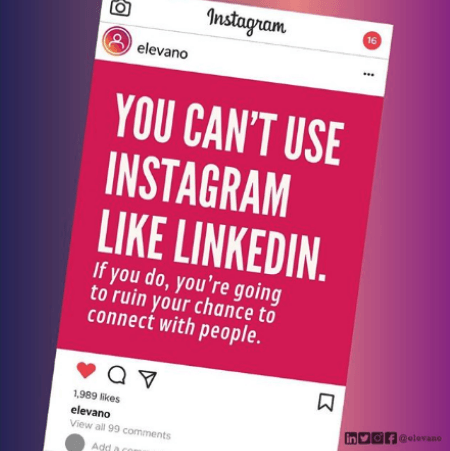by Simran Jessel | Jul 9, 2019 | Uncategorized
Top 6 Issues Job Seekers Have With Your Careers Page
Similar to how recruiters or hiring managers judge job candidates based on first impressions from their resume or an interview, companies are judged by job seekers based on their first impressions of their careers page. A career site is one of the most important channels when it comes to recruiting for a position in your company. Your careers page needs to be the best it can be to leave the best impression and convert job seekers into applicants. Missing information, mistakes, and broken links are just a few of the problems that may exist with your site and can cause job seekers to leave your website without applying. Here are six issues job seekers may have with your careers page.
Your Careers Page Isn’t Easy to Find
Don’t make job seekers play hide-and-seek with your careers page. The page should be simple to find on your website, such as located in the footer or header of the home page. This shows that your company is serious about hiring, and keeps potential employees from getting frustrated and leaving your site. This may seem like a simple concept, however, you would be surprised by how many businesses don’t have clearly visible link to their careers page, if one at all. It’s also wise to make the URL something simple, such as /jobs or /careers.
The Page is Broken
Possibly a much more important issue than the careers page not being easy to find is a broken careers page or website. Nothing really says to job seekers “don’t apply” better than a careers page that doesn’t work or contains broken links. Here are a few things to consider when evaluating the careers page of your company’s website:
- Do all of the links work?
- Does the page load correctly and quickly?
- If there’s a search function, does it work properly?
- Does the page load properly on mobile devices?
The Application Process is Too Long
One of the things job seekers don’t want to see when they finish going to an application page is a dreaded “next” button. Even more infuriating are fields to fill in asking for the same information that’s included in the resume they just uploaded. There may reasons to ask for this from candidates on the back end, but you take a risk doing so, as often job seekers get frustrated or annoyed and leave your site altogether. Ideally, the application for jobs on your careers page should be limited to one page. Another thing that can cause frustration in the application process is requiring applicants to create a login.
There are No Job Postings
No job seeker wants to go to a careers page and discover there’s no available job postings.
If job seekers able to easily find available job positions on your careers page. If your page only provides general contact information or sends applicants elsewhere to actually apply of a position, you’re making them take extra steps. Make sure your company offers a simple process for applying to jobs and includes a search function if you have positions in multiple locations. Just like candidates are judges by their resumes, companies are jud
Missing Information
Similar to a resume, a career site needs to be captivating and contain the right information to get the reaction from job seekers companies hope for. Most job seekers want to know what’s like working for your company. Your careers page needs to give these potential candidates what they’re looking for if you want them to seriously consider applying for a position. This information can include working conditions, company culture, benefits, and core values. You can describe job categories or positions as well to give candidates a better idea about them as well.
Unable to Apply by Phone
With the dramatic rise in mobile device use, having a mobile-friendly careers page is only growing in importance and is one of the main concerns of job seekers, this includes providing a mobile-friendly job application. Having the ability to attach a resume from Google Drive, iCloud, or Dropbox will make completing the application process a much easier task on mobile devices, providing a better user experience for job seekers who will look more favorably on your company.
Conclusion
These are some simple, but often overlooked issues that job seekers may have with your career page. Removing these problems or barrier for candidates will create a better user experience, potentially leading to more qualified candidates for positions. Try putting yourself in the shoes of a job seeker and test things out yourself to find out if your careers page includes any of these problems.
by Simran Jessel | Jun 5, 2019 | Uncategorized
Everyone wants to be seen or heard on social media. There are so many platforms each offering their own ways to share content and interact with a wide range of individuals. So it’s not surprising that businesses of all sizes, and from just about every industry, are using social media to engage with people and advertise their goods and services.
But for the most part, recruiting agencies don’t seem to be using social media marketing to bring in new business. At Elevano, we’re leveraging social media (along with other digital marketing techniques) to build an online presence. Through this, we’ve found a way to reach new clients and candidates, and provide content that resonates with wider audiences in tech, human resources and entrepreneurship. We’ve seen social media marketing work for our agency, but if you’re still on the fence, then read on to find out more about how social media can help your business.
The New Way to Reach Consumers and Clients
Social media marketing has emerged as a way for companies to create targeted campaigns that appeal to specific demographics. But as more and more brands turn to social media to supplement their other marketing streams (such as print, email or TV marketing, for example) social media has become just as popular, and competitive, as any other platform or medium that works to give brands a voice, and to reach consumers.
There’s one major feature that sets social media apart from those more traditional marketing avenues, though: it’s the ability to actually interact, in real-time, with your target audience. If a company posts about a new product on Instagram, they’re able to receive and measure feedback from their audience in the form of likes, comments and shares.
With these engagement metrics, brands can inform and improve their product strategy. Social media also provides companies with a direct line of communication between them and their audience (such as potential and current clients or consumers). Platforms like Facebook, Instagram and Twitter take customer service to a new level by providing real-time communication streams. What’s more is that those exchanges between consumers and companies (unless sent via direct message), are on display for other visitors to your socials to see. Of course, this can be both a good and bad thing for businesses, but altogether, it gives your brand a better sense of transparency.
So, what does all this mean for agency recruiters?
When you think of the type of companies that utilize (or benefit from) social media marketing, do you immediately think of recruiting agencies?
Probably not…
After all, how do you market your recruiting services on Instagram with as much success as a brand announcing a new product?! It’s a daunting task to make your mark amongst all the noise on social media– and there’s a lot of noise.
In addition, there’s the struggle that many recruiters already face with engagement on social networking sites like LinkedIn, which tends to be the result of professionals not wanting their superiors or colleagues to catch them interacting with agency recruiters. It makes sense that third party recruiters might struggle to see the value in social media marketing for their business.

The truth is that your content probably won’t resonate with people in the same way that that clothing brand does. But it doesn’t have to: they’re not your competition! Agencies that provide similar services to you are. As agency recruiters ourselves, we’ve come to realize that not a lot of recruiting companies know how to leverage social media marketing to bring in new business. It’s probably because they don’t think it’s relevant to their industry– and you might still think that too. Well, consider this: whether they sell goods, services, or both, companies have used marketing and advertising techniques for a very long time. So why would marketing on social media be industry-exclusive?
Every Industry Should Leverage Social Media
The reality is, in this digital age, everyone is glued to technology. Whether that’s their laptops, their tablets, their smartphones, their smartwatches… (you get the picture!) technology is everywhere and more accessible than it ever has been before, and social media is, too. If you’re not actively investing your time and effort into reaching people on those devices (ex. social media apps) then you’re losing out on a devastatingly big portion of your target demographic.
 Remember that it’s not just people you can advertise to, it’s also people who will advertise for you:
Remember that it’s not just people you can advertise to, it’s also people who will advertise for you:
Let’s say you’re looking for a new restaurant, for example. You do a quick search on your phone, you pick one, get directions and off you go… but not before you check up on the restaurant’s Yelp page, read a few more reviews on Facebook or Google, and maybe even take a look through their Instagram. You leverage social media to make your choice. Better still, you use social proof to see what people think about a business before you visit.
Typically, the more traditional forms of marketing (like an ad on TV, a flyer in the mail or an email in your inbox) have never had these channels of communication before. Yes, somebody could reply to an email campaign, but that response (good or bad) isn’t going to be seen by anyone other than employees of the company.
Take us at Elevano, for example. We quickly realized the importance of social proof. We had plenty of happy clients and candidates leaving us great reviews via email, but had no way of leveraging that feedback to generate new business. After all, a company can sell itself all it wants. But unless they have the social proof to back up their claims, it’s just not going to resonate as well as it could. That’s why we implemented a transition from email based feedback to public reviews on platforms like Facebook and Google. Now, we actively ask people who work with us to share their experiences online. Through this, we’ve built up over 100 reviews in a short period of time on Google: so anyone who searches for our company automatically sees what real people think about our company and the services we offer.
It all comes down to this. People want to know what others think about services or products before investing their own time and money.
Social media gives people the power to do that. It also opens up a channel of communication from businesses to consumers, and consumers to other consumers.
Whether it’s the comments section of your post on Instagram, or a review on your Facebook page. Social proof via social media heavily influences how others perceive your company. If you do a good job of managing this engagement, then your business will do well too.
So, where do you start?
Of course, the exact way a company leverages social media will vary across industry type, but ultimately, everyone is using the same platforms to get their message across. This means that recruiting agencies can (and should!) be doing everything to leverage technology and social media to drive candidates and clients to their company.
Strategy is everything when it comes to social media marketing. For recruiters, knowing exactly what kind of content you want to produce can be difficult. Do you want to advertise your clients’ roles on social media? How about start conversations up with HR and salespeople? Or maybe you want to share your tips with fellow recruiters.
Whatever your goals are, market research is a great place to start. You should already have an idea of your target demographic. Find out what speaks to them, and the platforms they’re using. You’ll probably find that Facebook, Instagram and Twitter dominate while sites like Medium, Quora, Reddit and YouTube can be introduced as you ramp up your content efforts.

Experimenting is everything when it comes to a solid content strategy. You need to be willing to adjust your content to cater to your audience, or you won’t resonate with them. Don’t make content for content’s sake! Everything you post should have purpose, and you’ll see better engagement as a result.
Once you’ve taken some to come up with a content plan, don’t wait to execute it! The world of social media is fast paced, so come prepared and watch as this marketing avenue helps to bring in new clients and candidates for your agency.
One final piece of advice

Before we go, it has to be said: whatever you decide to do with your social media marketing plan, remember to know the platform you’re using! Every recruiter’s favorite site, LinkedIn, has purpose-built chat functions for you to speak to potential candidates or clients. But Instagram doesn’t. Neither does Facebook, Twitter, YouTube etc. So remember, it’s fine to use social media to bring in new business, but you need to be authentic first.
Find ways to connect with people, and you’ll see just how beneficial social media marketing can be for your agency!
by Simran Jessel | May 20, 2019 | Uncategorized
How Recruiters Alienate their Candidates

Yes, everyone wants to use social for recruiting.
Social for recruiting works, but the problem is: you can’t use it like you would your email. You need to approach it as a much longer process.
So, if you’re thinking, “I need a candidate today”, then you’re better off hitting them on LinkedIn or emailing/ cold calling.
If you’re like, “Hey, I know I need this pipeline generated over time,” and you have more time, then than the slower process would be to follow someone on their socials first, interact with their content and then, after a while, you can hit them up with opportunities.
Otherwise, using social media to source candidates comes across as out of context. It won’t resonate, and you’ll just end up alienating them.
by Simran Jessel | May 20, 2019 | Uncategorized

Some recruiters take a scan through a person’s LinkedIn profile, see that they’re in a similar role or industry to the one that they’re recruiting for, and count that as ‘research’ before reaching out to them.
Do you see the problem here?
Good. So do we! At Elevano, we’ve come to realize that context is everything. That means a quick scan through someone’s LinkedIn profile is simply not enough to show that person that you’ve done your research on them. Neither is sending the same copy + paste messages to anyone working X role in X industry. Because that’s not personalization. As a result, it simply won’t resonate as well it could be.
So you do you start building a better lead generation strategy?
Well, with the right mindset, it’s easier thank you might think. Here are five tips you can start using in your strategy today:
1. Personalized Messages Need More Context
It’s great that you’re already doing your research on candidates before reaching out to them. But there’s always room for improvement. You’re not going to stand out amongst a sea of dozens of other recruiter emails or InMails if your background research consists of a quick browse through someone’s LinkedIn profile! Think beyond mentioning a piece of someone’s work or education history when you reach out. Tell them exactly why your client’s role is perfect for that person. Tell them exactly how it will improve their career trajectory. Understand who you’re selling to, beyond just seeing their current job title and industry.
2. Embrace the ‘No’s’
Most agencies stop investing time and effort in a person after they’ve sent something along the lines of, ‘I’m not looking at the moment.’ But the fact that they responded at all means that you shouldn’t forget that person. They still took the time to engage with you, and engagement is engagement whether it’s a yes or a no. That person might not be looking at the moment, but who’s to say they won’t be looking in a few month’s time? Keep your ‘no’s’ on file, because you never know when they could turn into ‘yes’s’.
3. Test, Test, and Test Again
Agency Recruiters struggle when it comes to their digital marketing efforts. Focus on creating a content strategy that works for your business. What are the selling points that make you unique? Plan and test different ways to showcase those selling points on social media. Whether it’s graphics, videos or plain text: test what resonates with your audience. Then test some more! Your content strategy isn’t set in stone. Videos might be working well for you until one day… they don’t generate that all important ‘thumb stop’ from your audience. So be prepared to make changes as you go along.
4. Do You Want a Job Board to Speak for You?
Pay-per-click job boards are effective, but they’re not for everyone. At Elevano, we realized that the ad dollars spent on these sites could be put to better use elsewhere (that’s how our digital marketing strategy was born!) If you’re using job boards, decide whether or not you could be doing a better job with the messaging and advertising for your clients.
5. Copywriting matters. And every platform needs its own, tailored copy.
Copywriting is an important part of your recruiting strategy. A candidate’s first impression of you might very well be an email or InMail. Make your words count. And remember the platform, too. What works on Twitter isn’t going to read as well in an InMail. We get it: recruiters aren’t writers. It’s not part of the job description! But copywriting is still an important part of your recruitment strategy. Look into copywriting strategies or consider hiring some additional help to give you a boost (and free up some time!)
There you have it: five ways to boost your lead generation strategy. You can easily start implementing (or thinking about) these tips right now. So, what are you waiting for?!
by Simran Jessel | Apr 10, 2019 | Uncategorized
You’ve reached perhaps the most intimidating part of the interview process: the on-site technical interview. This interview will likely consist of both your typical behavioral interview questions and more technical questions that dive into your skills and knowledge. There may even be a whiteboard aspect for coding exercises. What’s important is to stay calm and prepare yourself.
Interviewers will look for many different things during the interview that range from cultural fit and communication skills to being able to understand the bigger picture and to think creatively. Whiteboard exercises and technical questions help interviewers assess your problem solving skills, analytical thinking, and coding skills. To help you get ready for your on-site technical interview, take at look at the following five tips.
1. Practice For the Technical Interview
One of the best things you can do to prepare for an on-site technical interview is to practice. A popular resource for doing this is Cracking the Coding Interview, which provides many different examples you can go over and help with some coding fundamentals. Check online for practice problems and examples of interview questions as well.
You will likely be given a whiteboard for any coding exercises during the interview. This is to encourage candidates to think a bit more and communicate their process and knowledge. If you have a friend who is also in a tech job, try having them help you practice interviewing.

2. Know Your Programming Fundamentals
Assuming you will be doing some sort of coding during your on-site technical interview, it’s important to know the fundamentals of data structures and algorithms, such as breadth-first search and binary search trees. Many interview questions assume that candidates know these things.
You should also know how to code in at least one or two programming languages. There are several resources available to help you learn these languages and other skills, such as Coursera and Udemy. It’s alright if you forget exact parameters, but you should know how to write reasonable code on your own, such as classes and functions.
3. It’s Okay to Not Know an Answer
It’s completely OK to not know an answer to a technical interview question, and sometimes interviewers might assume you won’t immediately know the answer. In some instances, questions are asked to see how candidates process the question and how they would go about figuring out the solution.
If you’re faced with a coding question you don’t know during a whiteboard coding exercise, write down the details of the question and try to think of input and output examples to help you come up with an answer. It’s important here to take a minute or two to think about what to do, don’t rush into the coding.
4. Be Prepared to Talk About 3-5 Projects or Challenges
You should be prepared to discuss in detail a few projects you have worked on or challenges you have faced. With challenges, be sure to talk about the most difficult technical situations, such as tricky bug fix, a new algorithm, or optimization, and not just how much you learned. The idea is to communicate that you can handle hard challenges.

5. Be Prepared with Questions
Interviewers expect you to ask some questions during the interview as well. When the interview asks “Do you have any questions for me?” you don’t want your answer to be “No.”
Some general questions could include: ”What is a typical day look like for someone in this position?” or “How would you describe the company culture?” However, with technical positions, it could be more beneficial for you to ask more specific questions about the position, such as:
- What new technologies/frameworks/tools do you use?
- How many people are in the team?
- Do you have a test environment?
- Who is responsible for live site issues? What if something bad happens in the middle of the night? Do you have on-call rotations?
- Does the company provide courses/trainings/workshops/conferences outside of the company?
While an on-site technical interview can seem intimidating or even daunting, you don’t need to worry. With some practice and preparation, you can walk in and crush that interview. Elevano can help you land the tech job you’re looking for.








